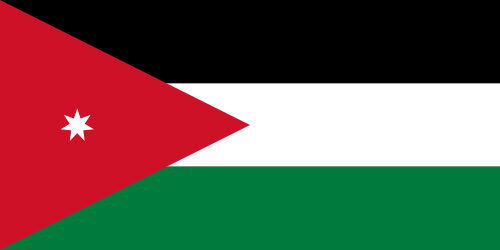Jordan, officially known as the Hashemite Kingdom of Jordan, is a sovereign Arab state in Western Asia, located on the East Bank of the Jordan River. It’s bordered by Saudi Arabia to the south and east, Iraq to the northeast, Syria to the north, and Israel and Palestine to the west. The Dead Sea lies along its western borders, and the country has a small shoreline on the Red Sea in its extreme southwest.
List of Public Holidays in Jordan for the year 2024
- New Year’s Day: Monday, 1 January 2024
- Eid Al Fitr: Monday, 8 April 2024
- Labour Day: Wednesday, 1 May 2024
- Independence Day Jordan: Saturday, 25 May 2024
- Eid Al Adha: Sunday, 16 June 2024
- Islamic New Year: Monday, 8 July 2024
- The Prophet’s Birthday: Sunday, 15 September 2024
- Christmas: Wednesday, 25 December 2024
Important Information about Jordan
History:
Jordan’s history dates back to ancient civilizations, including the Nabateans, who left their mark in Petra, a city now considered one of the New Seven Wonders of the World. Throughout history, it’s been part of several empires, including the Roman Empire, the Ottoman Empire, and, most recently, the British Empire.
Geography:
Jordan is characterized by its varied terrain and climate. While much of Jordan is desert, the northwest part of the country is quite fertile and is part of the Levant region. The country also features the Jordan Valley, a part of the Great Rift Valley, and the highlands, where the capital, Amman, is located.

Government and Politics:
Jordan is a constitutional monarchy with a parliamentary system. The king holds wide executive and legislative powers, including the appointment of the prime minister and the cabinet. The country is relatively stable politically, particularly in a region often troubled by conflict.
Economy:
Jordan’s economy is classified as an emerging market. It’s relatively small, with a lack of natural resources like oil and water, which makes it dependent on foreign aid, investments, and tourism. Major sectors include services, tourism, information technology, clothing production, and phosphate mining.
Population and Culture:
Jordan has a population of around 10 million people, with a majority being of Arab descent. It’s also home to a significant number of refugees, particularly from Palestine and Syria. Islam is the predominant religion, but there’s also a Christian minority. Jordanian culture is a rich blend of traditional Arab and Islamic elements with Western influences.
Tourism:
Jordan is famed for its ancient monuments, nature reserves, and seaside resorts. Petra, the ancient Nabatean city carved into red desert cliffs, is the most iconic site. Other significant sites include the Roman ruins at Jerash, the Dead Sea, Wadi Rum’s desert landscapes, and the coral reefs of Aqaba.
Education and Healthcare:
Jordan has one of the highest literacy rates in the Arab world. It’s known for its quality education system and has become a regional hub for students, particularly in higher education. In healthcare, Jordan has a high standard of medical services, often attracting medical tourism.
Challenges:
Despite its stability and relative progress, Jordan faces several challenges. These include managing the influx of refugees, a lack of natural resources, water scarcity, and economic issues like unemployment and debt.
Relations and Diplomacy:
Jordan maintains diplomatic relations with a wide range of countries and is known for its moderate approach. It’s a member of the United Nations and the Arab League and has peace treaties with neighboring Israel and strong ties with the United States and the European Union.
In conclusion,
Jordan is a country with a deep historical heritage, a mix of modernity and tradition, and a key player in the Middle Eastern geopolitical landscape. Despite its challenges, it continues to be a beacon of stability and progress in a volatile region.
